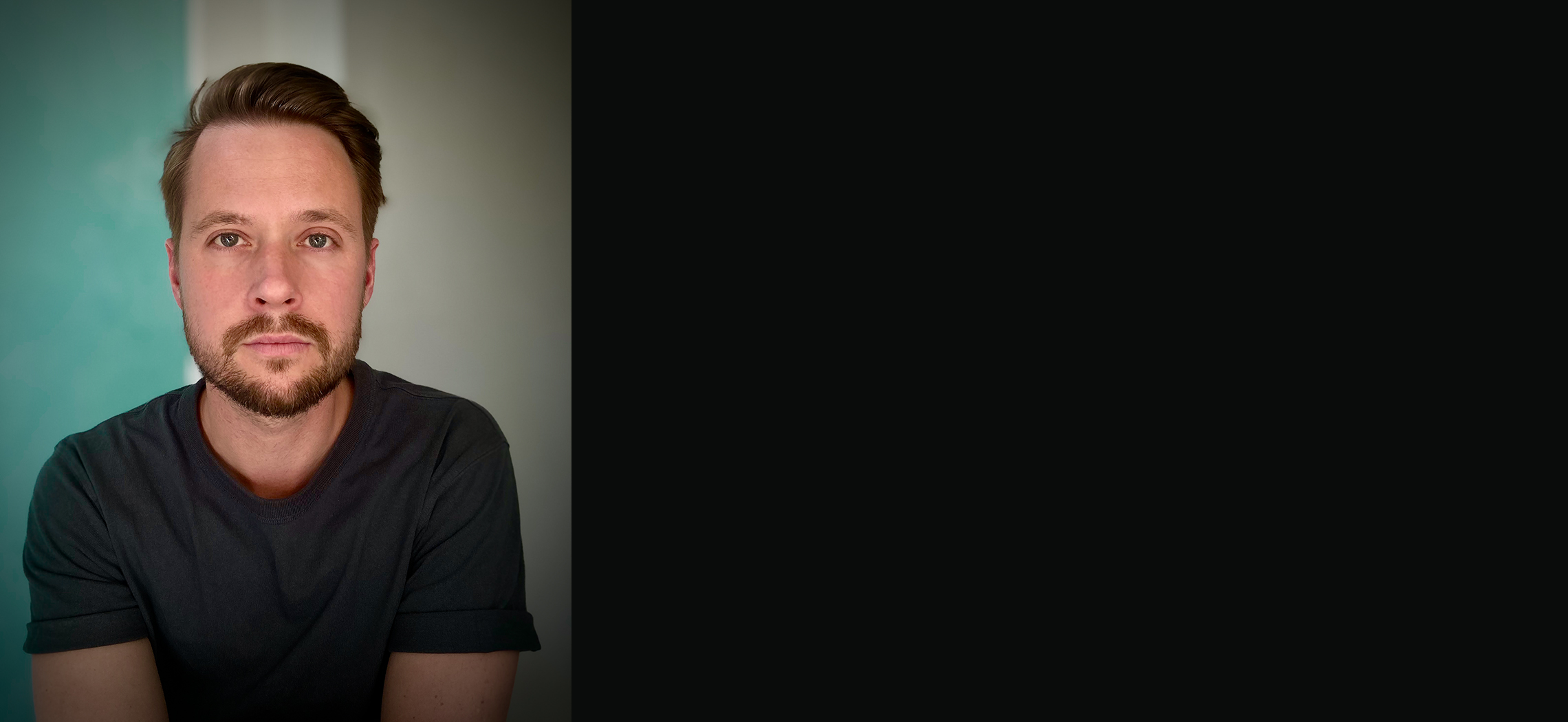A PORTRAIT OF DIRECTOR FLORIAN DIETRICH
Florian Dietrich © Bela Kersten“For me, actually it always develops out of pain.” If you ask Florian Dietrich about his definition of a good comedy, it quickly becomes clear that when it’s a matter of humour, the director is concerned with more than just knee-slapping. “Without a certain seriousness and the supporting stability of tragedy underneath, comedy is rarely very funny to me. Often, I find dramas with some comic moments funnier than determinedly comedic ones. TONI ERDMANN, for example, was labelled as a comedy, but I wouldn‘t subscribe to that, even though I laughed until I cried during that film.”
Dietrich‘s own movie, TOUBAB, also attempts a precarious balancing act between serious and funny: the buddy comedy tells the story of Babtou (Farba Dieng), freshly released from prison, who – although born in Germany – is due to be deported to Senegal and therefore decides to marry his best friend Dennis (Julius Nitschkoff), who is also heterosexual. The original motivation for the filmmaker, who was born in Wiesbaden in 1986, was to denounce inconceivable legal injustices and social grievances. But his goal was one that sometimes gets rather overlooked in German cinema. “It was important to me”, he emphasises, “to tell a story about a very serious subject in a way and in a tone that would not preclude one’s own protagonists from being part of the audience.”
At the German Film and Television Academy in Berlin, where Dietrich studied from 2007 and started developing TOUBAB, his walk on the fine line between drama and comedy was definitely supported, the director emphasises. But not everyone in the German film industry takes this so lightly. “For many potential commercial partners, the project was too arty; other promoters found it too commercial”, Dietrich recalls. “The signals were: if mainstream, then right – or ‘real art’. I still wonder about that today because actually, I don‘t think such a distinct division is still what our film industry really needs.”
Success has proven Dietrich‘s approach correct, certainly. TOUBAB not only won the New Faces Award and was nominated for the First Steps Award, it also received three prizes at the festival premiere at Filmkunstfest Mecklenburg-Vorpommern in Schwerin shortly before its German cinema release in autumn 2021. There were also audience awards at both Warsaw International Film Festival and the Festival of German Film in Lisbon. These two international awards mean a lot to the director, who spent nine months at Tel Aviv University during his studies: “Not least with German comedies, there is always the question whether they actually work outside their own sphere – abroad, in other words.”
Dietrich now hopes that his future projects can be realised a little more easily and, above all, more quickly than TOUBAB, which took a total of seven years to make. The fact that one of the ideas he is currently working on is a series has less to do with the fact series are currently being produced at an incredible pace, often shot before the scripts are completely finished, as he admits on record: “The great quality of series, of course, is that you can shift the focus from episode to episode”, which is a particularly appealing approach for the heist and ensemble story he is planning.
However, there is no reason to fear that the director will turn his back on cinema. “As great as a quality series can be, I still think an individual piece of cinema is a more satisfying experience”, says Dietrich. “You don‘t watch it in a disjointed way, an episode here and ten minutes there on the bus – you sit in a room with other people for one and a half to two hours, and let a story work its magic on you. Whereas series tend to contribute to isolation, cinema is a shared experience – and also an important celebration of the medium. And we need such rituals more than ever in times like these.”
Patrick Heidmann

